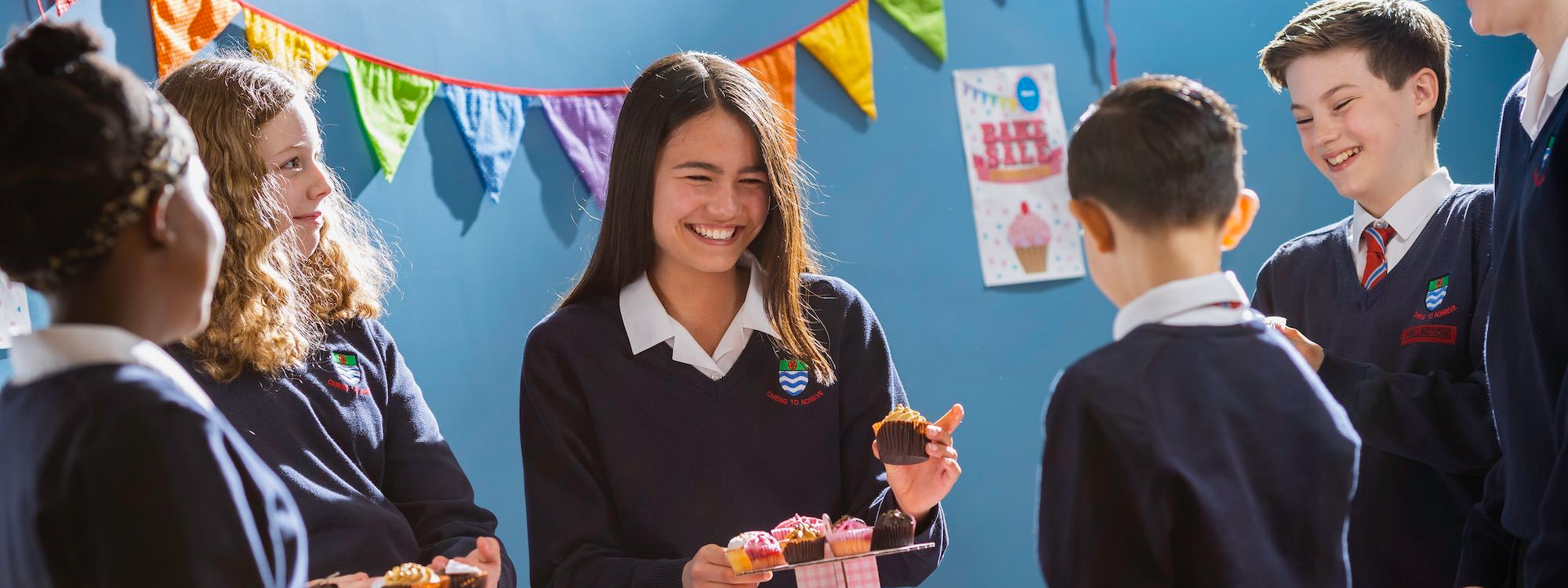- Home
- Learning With Us
- Get Set Days
Get Set Days
In Years 9-11 students are given ‘Get Set Days’ every half-term, where students are taken off normal curriculum. These days are broadly broken down into the following topics:
- Personal, Social and Health Education (PSHE) - including Relationship and Sex Education
- Philosophy and Religious Education (PRE)
- My future self (careers, employability and exam preparation)
- e-Safety
We encourage outside speakers and educators to come into the school to supplement the days, for example in 2025 we had Drugs Sense UK come in to talk to Year 7, 8 & 11 about County Lines and Drugs. Yr 9 had a whole day learning how to stay safe in Hampshire delivered by the Police and Challenge Academy.
PSHE & RSE
In Year 9, students just cover the PSHE element of the Get Set programme, in "off curriculum" days, with the Relationship and Sex Education covered in a lesson once every half term by a trained specialist.
In Year 10, students learn about a range of topics from mental health, healthy relationships, citizenship, financial decision making and exploring influence of drugs and gangs. Consent is explored as part of the programme. The RSE element of the programme is delivered by trained specialists.
In Year 11, there is a session called ‘Conception & Misconception’, which looked at the emotional, physical and financial constraints of becoming a teen parent, using real life teen mums from Hampshire.
Further sessions cover both mental health and careers. We have had singers performing covers and original work leading to a talk about career aspirations, how to believe in yourself, achieve goals and overcome the mental strain of revision for GCSEs.
Philosophy, Religion and Ethics:
In KS4, pupils continue to study Philosophy, Religion and Ethics as part of their Get Set days. The aim of these sessions is to prepare pupils for the world they are about to enter. As such the sessions are designed to have pupils to tackle the big questions of life, focussing on current affairs, moral issues and dilemmas. Throughout their lessons, pupils explore different worldviews, helping them to develop understanding and tolerance of the diverse world we live in, as well as engaging pupils in current affairs. Topics studied so far have included:
-
The importance of law and morality
-
The role of the media in depicting religion and religious groups
- Understanding the Israel and Palestine Conflict
Through these topics, pupils are encouraged to examine their own worldview, through critical evaluation skills embedded throughout their lessons, often through class discussion and debate!
If you would like any more information on the delivery of PRE in Get Sets, please contact Miss Dick, Curriculum Lead via the following email: adminoffice@court-moor.hants.sch.uk
My Future Self
In Year 10, students begin to research college options and future career paths. A number of local colleges and apprenticeship providers present to students about the variety of routes available, and the relevant requirements.
Later in the year, the students begin to work on their CV, and a covering letter, having been shown several successful examples of both. This is in advance of ‘interview day’, when local business people voluntarily come into school to give students their first experience of an interview, asking searching questions about their skills, qualities and experience to date.
In Year 11, the focus switches back to college applications. Again, we welcome local colleges to speak to students, including a ‘speed dating’-style event.
Across Key Stage 4, we educate students on the science of the meta-cognition of ‘how we learn’ and the best ways to ensure a stress-free exam period in Year 11.
This includes sessions on ‘growth mindset’, to enable students to develop a ‘can do’ mentality and build their resilience. We focus on revision strategies, including managing time effectively, and maximising the resources available to students, such as online platforms like Seneca Learning.
e-Safety
As most learners will already have some form of online presence and familiarity with online spaces, the purpose of this unit is for them to start thinking more critically about how they, and others, conduct themselves online. Students will also be asked to discuss key debates around the online world, such as the extent of their right to privacy, and which powers should be granted to organisations and states. As much as possible, students should be encouraged to develop their own ideas and opinions in order to become engaged citizens when it comes to online rights.
Documents
| Page Downloads |
|---|
| Provisional Get Set Programme Years 9 11 |

